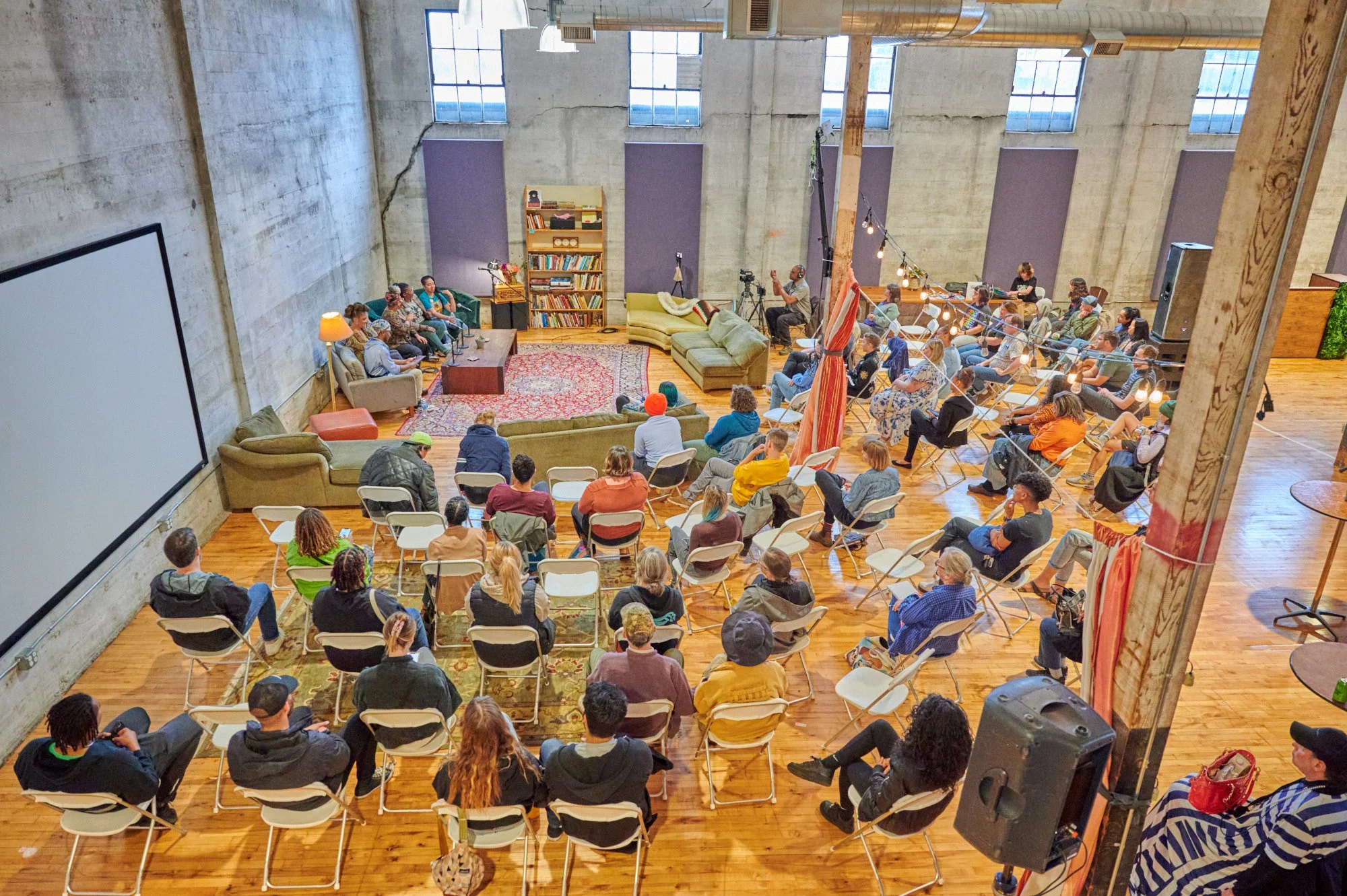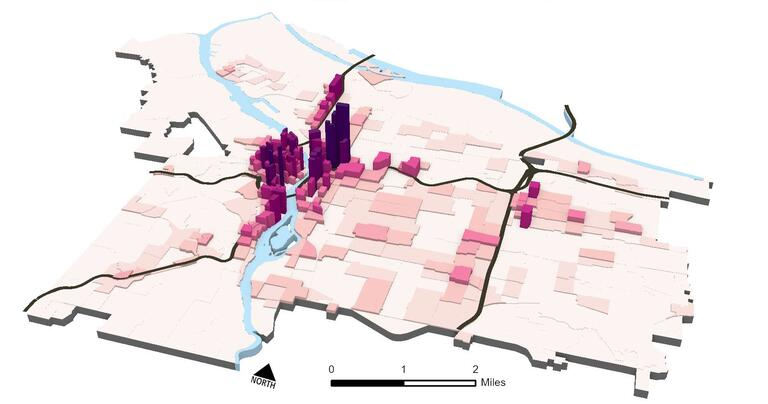
Learn More About What Matters
2025 City of Portland Transition
Portland’s Historic Government Reform Takes Shape!
In 2022, Portland voters overwhelmingly approved a series of City Charter reforms that will dramatically reshape the city's government structure. By January 1, 2025, this new form of government will be fully implemented, ushering in a new era of local leadership and representation.
To guide this complex transition process, the City has convened several volunteer boards and commissions to provide critical input and recommendations. The Independent District Commission, for instance, has been tasked with drawing the boundaries of the four new city council districts. Meanwhile, the Independent Salary Commission has set the compensation levels for the mayor, city councilors, and city auditor under the reformed system.
Overseeing the broader transition efforts is the Government Transition Advisory Committee. This group of community stakeholders continues to meet regularly, offering guidance to ensure a smooth and successful transformation of Portland's government.
As these reforms take root over the coming years, the Anti-Displacement PDX Coalition will be closely engaged to advocate for policies and practices that center the needs of marginalized communities. We are committed to working alongside these transition bodies to ensure the new government structure is intentionally designed to be responsive to the communities of color facing the brunt of displacement impacts.
If you are looking for some basics, here is some preliminary information about the new charter and how it differs from the prior government structure.
WHO
People of Portland voted for the charter
It primarily discusses the authority and checks and balances between The Mayor, City Administrator, City Councilors, and Bureau agencies
WHAT
Portland City Charter modifies prior charter distributions of power between the city’s bureaus, City Council, and the Mayors office.
WHERE
The City of Portland, Oregon
WHY
Recent changes to Portland's governance structure aim to enhance community representation.
Focus on improving transparency, efficiency, and efficacy of city administration.
Previous decision-making lines were often blurred, causing inefficiencies and lack of accountability.
Ensures that voices of Portland's diverse communities are more effectively heard and acted upon.
HOW
Redefinition of authority and clearer delineation of roles within the city's leadership.
Mayor's role is now distinctly separated from that of City Councilors.
Each leader can focus on specific duties without overstepping boundaries.
Introduction or clarification of a City Administrator role to streamline operations.
City Administrator manages day-to-day functions, freeing Mayor and City Council to focus on broader policy and community engagement.
Restructuring aims to facilitate smoother governance.
Presentations, Workshops, & Trainings
Tenant Tuesday August 2024
Presentation by Amanda Pham Haines
Checkout our ADPDX PSU YouTube Account for more videos!
Renter’s Rights 101 June 2024
Presentation by Michael Andersen
On the Ground is a short documentary featuring members of the Sisters Of The Road community, local activists, and elected officials speaking to lived experiences of houselessness and poverty in Portland, Oregon. Content direction by Sisters Of The Road community and production by Balance Media.
On the Ground
by Sisters of the Road
Sisters of the Road is a nonprofit cafe in Portland Oregon that alleviates that daily pains of those surviving on the streets. Through our unique barter work cafe, houseless folks and those experiencing extreme poverty can access warm, nourishing meals through 15 minutes of barter work, $1.25 or by using their SNAP Benefits. Above all Sisters serves up dignity, through healthy meals made from scratch, clean and accessible bathrooms and most of all love. Sisters cannot end houselessness alone, but with your support we can continue to break down the isolation our unhoused neighbors face everyday. Ton contribute go to: sistersoftheroad.org
Know an educator? Share the high school curriculum "Housing Crisis, Housing Justice" developed as part of this project by Hyung Kyu Nam (Wilson HS), Philip Rafferty(Jefferson HS), Kaley Hambelton (Cleveland HS), Ryan McCants (Lincoln HS) and Tom McKenna.
Anti-Displacement Reading List
Salt Lake City's "Thriving in Place" project aims to tackle gentrification and displacement
https://adpdx.squarespace.com/s/Babs-De-Lay-SLC.pdf
When people are forced to move out of their neighborhoods, the result can be cultural displacement. Lower income households are often people of color and immigrants, and when developers bring in new homes, its mostly white people who can afford to rent or buy. There are no longer any "affordable" neighborhoods where lower income families can move once displaced. There are still not enough housing units overall, especially those geared for low-income families. Over half of our renter households are spending more than 30% of their income on housing. This overview of Salt Lake City’s new anti-displacement program, Thriving in Place, asks “What does anti-displacement ‘success’ look like?” By Babs De Lay.
Unjust and Unsafe: The Eviction Experiences of Latine immigrant and Farmworker Tenants in Oregon
https://adpdx.squarespace.com/s/UnjustandUnsafe_TheEvictionExperiencesofLatineImmigranta.pdf
The Evicted in Oregon research team conducted focus groups with Latine immigrants and farmworkers in Multnomah, Washington, and Marion Counties to gain insight into their experiences with eviction and understand how they navigated through evictions during the COVID-19 pandemic. Through these discussions, we identified three patterns that are unique to the experiences of Latine immigrants and farmworkers who face eviction: mistreatment by landlords, fear of involvement with the legal system, and navigating unfamiliar procedures that have negative impacts on their health and family. A study by Natalie Cholula, Lisa Bates, Alex Farrington, Marisa Zapata and Jacen Greene of Portland State University.
Reclamation Toward the Futurity of Central Albina
https://storymaps.arcgis.com/stories/22d19dbbc9d2475cbe401de839c3e8e8
In recent years, the City of Portland has announced a number of new programs and initiatives aimed at moving the city, with a sordid history of racist violence and exclusion, toward greater racial equity. “Urban Renewal” in Portland has a particularly ugly history of racialized neighborhood destruction which has been discussed in a number of studies, reports, and documentaries. But the history is alive in the present. There are many people today who still remember the neighborhoods that were unjustly taken from them, and even more descendants of the displaced who have grown up hearing stories about these thriving communities, such as Central Albina, as they were before the bulldozers arrived. A project by Emanuel Displaced Persons Association & Futurelab.
Albina Vision Trust leaders show visiting architects a vision for Black joy in Portland
https://adpdx.squarespace.com/s/Albina-Trust-Leaders.pdf
The Albina Vision Trust is working on a 94-unit affordable housing building known as Albina One, which visitors viewed from behind a construction fence. The complex is the group’s first tangible project in their district-wide vision and is expected to cost $63.5 million. Flowers said 16 units will be set aside for people with Section 8 vouchers and 76 units will be eligible for the North/Northeast Preference Policy, which aims to address the harmful impacts of urban renewal by giving preference to applicants with ties to the area. This article gives an update on the progress of Albina Vision and the work that they continue to do in the Albina neighborhood of Portland. By Austin De Dios.
Projecting Portland's Housing Needs for the Next 20 Years
https://adpdx.squarespace.com/s/PDX-Housing-needs-20-years.pdf
The need for more housing that is affordable to lower income households ― as well as units that are age-friendly, accessible, and/or adequate for families ― is apparent. The HNA dives into the data and identifies housing that Portlanders will need over the next 20 years. It also suggests that strategies are needed to develop a variety of housing types (family-sized and accessible units, affordable housing) that are affordable to current and future households. By Eden Dabbs.
Gentrification & Displacement Study: Implementing an Equitable Inclusive Development Strategy in the Context of Gentrification
https://adpdx.squarespace.com/s/Gentrification-and-Displacement.pdf
This study focuses on the effects on the housing market, particularly the loss of affordable housing. It builds upon earlier studies to consider a broader interpretation of displacement that encompasses not just when a household is forced to move by conditions that affect the dwelling, but also to take into account changes in the neighborhood as a whole. These neighborhood changes can result in a neighborhood’s inability to provide basic services that make it impossible to continue residency as a “voluntary” response. By Dr. Lisa Bates.
Tenant Resources
The Fair Housing Council of Oregon's Training seminar on recovering the history of Portland's infrastructure
The Fair Housing Council of Oregon's Training Seminar on creating more accessible living spaces
A video breaking down the impact and consequences of Senate Bill 608
The Fair Housing Council of Oregon's training seminar on how to apply fair housing principles to those with criminal history
This series brings together candidates running for various positions across Portland to discuss the future of public safety, a topic that impacts every Portlander.
In this essential debate and conversation series, we dive deep into how these candidates envision public safety in Portland. By watching, you’ll gain critical insight into their policies and proposals, helping you make informed decisions as a voter. You’ll also see how these candidates respond to the unique needs of Black Portlanders, with an opportunity to hold them accountable to the community’s demands.
This series unapologetically centers Black issues and is designed to serve the entire Black Portland community, especially those who feel disconnected from politics. While this debate is not an endorsement of any candidate, it’s a powerful tool to understand where they stand on issues that matter most.
Watch the trailer to get started, and watch the full recordings to stay informed and empowered for this election.
Go to their website to watch this important series of interviews of our Portland City Council candidates, some of which successfully took office in January 2025 in the new Portland city governance model.
We want to hear from you!
The Coalition would love to hear from you, our community, what topics you would love to learn or discuss, or make us aware of needs within the community that fall under the specialty of the Coalition.
We would also love to hear about your direct experience with the Coalition!
Please use this form to submit any feedback, education needs or your lived experience.






